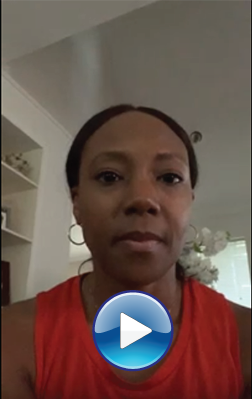Why Should Healthcare Providers be Trained on Obesity Treatment? Hear from an OAC Community Member
 When the topic of her excess weight was raised, OAC Community Member Shenese Colwell says her healthcare provider (HCP) didn’t offer suggestions for weight-loss. Knowing that she needed to address her health, Shenese began to research options and learned about bariatric surgery.
When the topic of her excess weight was raised, OAC Community Member Shenese Colwell says her healthcare provider (HCP) didn’t offer suggestions for weight-loss. Knowing that she needed to address her health, Shenese began to research options and learned about bariatric surgery.
Her HCP was not supportive of surgery as an option, though. She wanted Shenese to try anything besides medical or surgical treatment. Her doctor wanted to help, but she didn’t know how.
That’s when Shenese took matters into her own hands. She stated that she wanted bariatric surgery, and told her HCP what she needed from her to make it happen. Later, after seeing Shenese thrive after bariatric surgery, her HCP educated herself on bariatric surgery and began to talk about it as a valid obesity treatment option.
Listen to Shenese’s full story HERE.
What’s Wrong with this Picture?
Patients are not trained in treating health conditions. The best they can do is research possibilities and talk about them with a trained professional. Shenese, and other patients like her, should not have to discover on their own what obesity treatment options are available to them.
Lack of Knowledge is a Barrier to Obesity Care and Treatment
Stories like Shenese’s highlight the fact that healthcare professionals should do better. It is important that they are knowledgeable about obesity treatment options that extend beyond lifestyle changes.
A patient cannot treat their obesity if they are not given the tools, resources or advice to do so. It is not a patient’s job to manage their weight alone, as everyone needs support and guidance. HCP’s play a crucial role in helping patients improve their health and quality of life.
Why the OAC Cares:
Thankfully for Shenese, her HCP was willing to learn from Shenese’s experience and success. She changed her perspective on bariatric surgery and also how she works with patients. Shenese says,
“She now supports her patients that are considering weight-loss surgery, she finds it easier to discuss weight with patients, and helps them find what works for them.”
This is why it’s so important to be your own advocate, even if you’re walking through the dark at first. Great things come from persistence, and it’s your right to make decisions about your health.
The OAC believes in access to effective and science-based care for everyone. This is why we are supporting National Obesity Care Week (NOCW), and it’s happening RIGHT NOW! NOCW challenges all of us to change the way we care about obesity.
Here’s What You Can Do:
As the OAC continues to recognize NOCW, visit the OAC Action Center for opportunities you can take RIGHT NOW to help improve access to care for patients with obesity. CLICK HERE to Act Now!
